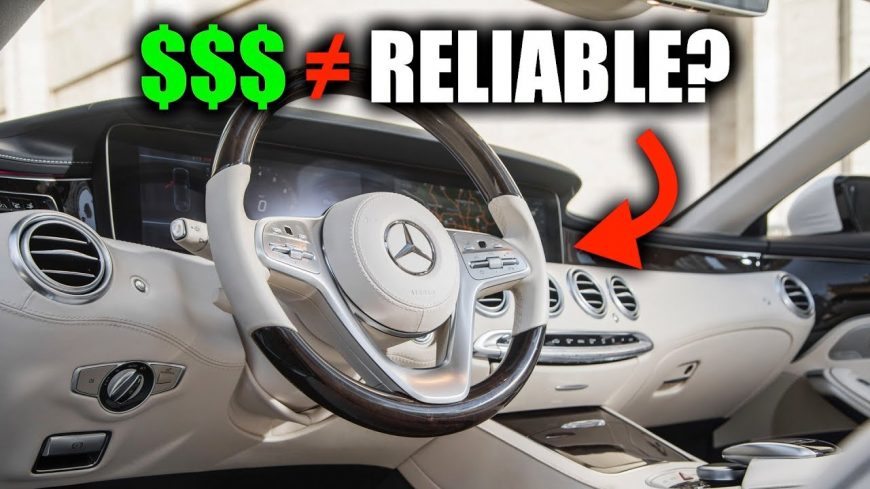Why Expensive Cars Aren’t Always Reliable

When it comes to buying modern cars, the odds are good that something on or inside it will eventually fail. I don’t think that’s a surprise to anybody out there, but we’re going to dive deeper into that dynamic with Jason from Engineering Explained to see how that effects the luxury market and compare cars at that level to those that the rest of us may be looking at for our next purchase.
Jason spent the day behind the wheels of Mercedes’ S560, the German automaker’s ultra-modern, feature-packed cabriolet that comes with a heft $150,000+ price tag. As you will see, the car is quite literally brimming with features and modern additions that go a long way toward making the driver feel as if he’s spending the day today in a car from the future. As Jason points out, there are no fewer than a dozen sensors just to keep tabs on the climate control system, including monitoring the incoming air for harmful gasses and keeping the windshield from fogging up, among others. Attached to these sensors are a full 18 actuators to make the necessary changes to the climate control to keep the driver comfortable and the cabin as pleasant as possible.

So how does this tie into reliability? Well simple odds will tell you that the more components there are in a car, the more opportunities there are for something to break or malfunction. It’s simply going to happen, it’s just a matter of when. But with a car like this, does it really matter? One that that is safe to assume with a car you’re paying over $150,000 for is that the components are of the highest quality, as are the supporting electronics and wiring harnesses that keep everything connected. These factors go a long way toward ensuring the systems make it at least several years before something does fail, and since at least 50% of luxury cars are leased, this means the “new car buyer” likely will never have to deal with these failures. While that is worse news for the used car buyer, he or she also knows that is part of the risk taken with buying used and that’s why the car will cost less, overall, than a new one. As Jason alludes to, more affordable brands like Toyota and Mazda look more toward longevity, as they want that reputation of having their cars last for generations so keep buyers coming back as they hand down their older models.
With some strong points being made, we learn why automakers like Mercedes focus more on features and amenities vs having a car that will operate trouble-free for decades. So what do you think about this, Speed Society fans? Hit us up in the comments and let us know!

